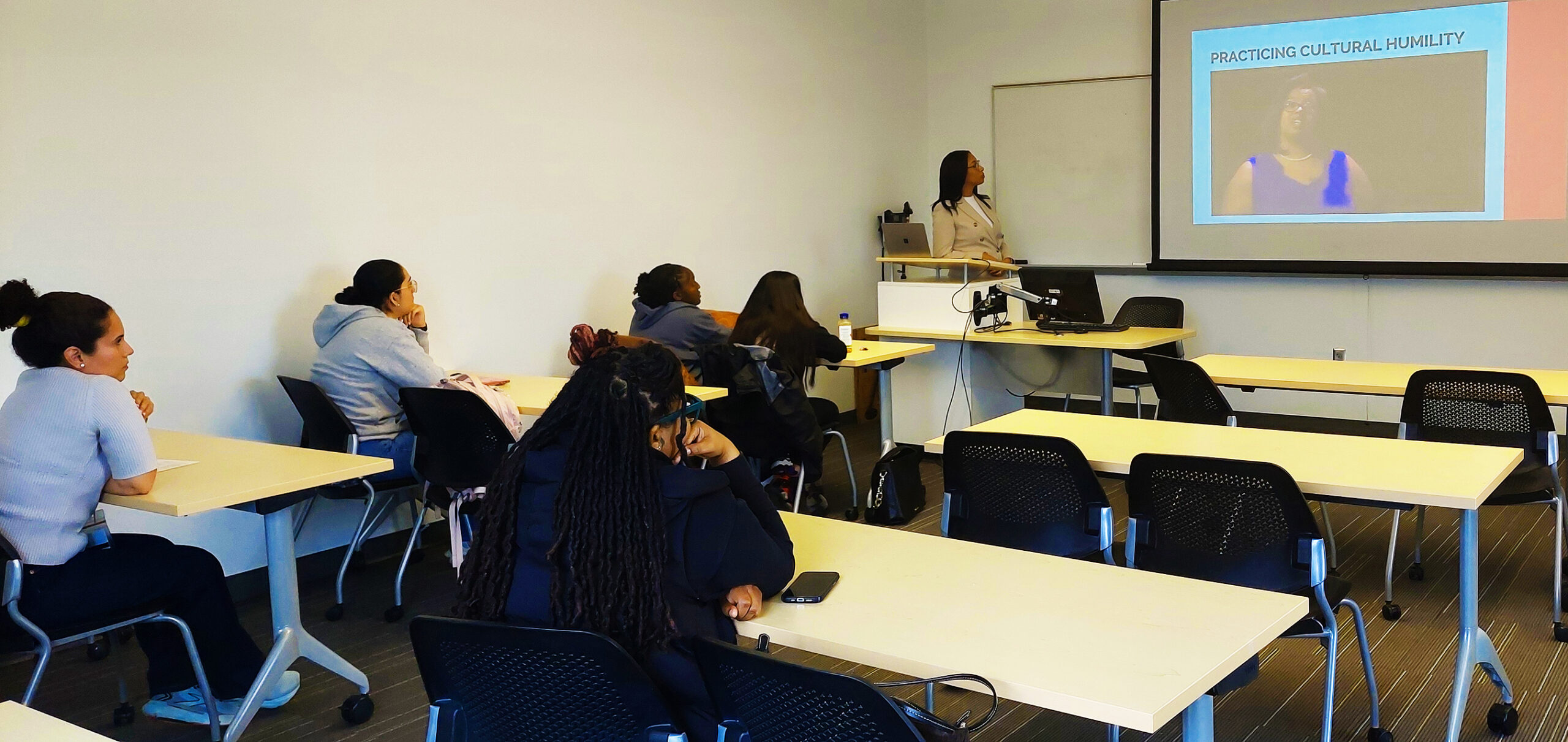
By Saron Gebereegziabhier
Trinity Times Correspondent
The persistent public perception of social workers as professionals who remove children from their families has long dogged the field. But leaders of Trinity Washington University’s Social Work Program are working to change that image.
In celebration of Social Work Month this past March, Trinity hosted an open house on March 17 to highlight the accomplishments and continued growth of its Social Work Program — a celebration of a profession rooted in service, advocacy and justice.
That persistent stigma that social workers rip crying children from the arms of their mothers is not rooted in fact, and only a percentage of professionals in the field are working in child services, said Portia Cole, director of Trinity’s Social Work Program, which was established in 2022.
“There was a strong interest from [Trinity] President [Patricia] McGuire in establishing a Social Work Program,” Cole told Trinity Times.
The social work profession of social justice advocacy aligns with Trinity’s founding mission, McGuire concluded, in addition to the need for social workers in the Washington metropolitan area.
“My vision was to draw upon my 15 years of experience as a faculty member and develop the infrastructure needed for the program to thrive,” Cole said.
Building the program required her to create the curriculum from scratch, establish policies and begin the accreditation process for a Bachelor of Social Work (BSW) degree.
A significant milestone in the program’s development was integrating Introduction to Social Work into Trinity’s general education curriculum. This ensures that all students, regardless of major, are exposed to the core values and principles of social work early in their academic journey.
The open house gave current and prospective students a chance to explore the program and meet faculty members, including Zina Charles, an adjunct professor and behavioral health assessor for the D.C. Department of Behavioral Health. Charles teaches Introduction to Social Work, a course often responsible for shaping first impressions of the profession.
“The difference between social work and social services is probably the biggest misconception,” she told Trinity Times. “Social work is broader than people realize — it spans policy, advocacy, clinical practice and more.”
Social workers are mental health professionals who help individuals and communities overcome challenges, improve well-being and promote social change. They apply social theories to understand human problems and advance societal improvement.
Core responsibilities include:
- Advocating for clients and social justice
- Promoting social welfare
- Educating and counseling clients
- Connecting clients with community resources
- Protecting vulnerable populations
- Researching social issues to find solutions
Social workers often specialize in areas such as child welfare, addiction recovery, life-threatening conditions or trauma support.
They serve a wide range of populations, including:
- Children and teens
- People with mental health or medical conditions
- Individuals with disabilities or addictions
- Unhoused people and veterans
- Trauma survivors, couples, families and older adults
- LGBTQIA+ individuals, students, immigrants and refugees
Charles said it’s important for the university to celebrate Social Work Month both for professional recognition and public awareness.
“We work extremely hard, especially with vulnerable populations, and sometimes we’re not getting the recognition we deserve,” she said. “Social Work Month brings awareness to the work being done.”
Charles emphasized Trinity’s unique role in the field.
Trinity isn’t an HBCU [Historically Black Colleges and Universities], “but we are a school of women and people of color,” she said. “Our students come from diverse backgrounds and are often returning to school with a purpose. Many of them have experienced social services and now want to give back.”
The theme of inclusion was echoed by Ashley Ewing, director of recruitment for Trinity’s School of Nursing and Health Sciences.
“We welcome recent high school graduates, adult learners, transfer students and working professionals,” Ewing said. “It’s what makes our classrooms dynamic and our community strong.”
Beyond celebrating the profession, Trinity’s BSW program is laying the groundwork for long-term student success. The program requires 400 hours of field practicum — 200 in the fall and 200 in the spring — to ensure students gain hands-on experience in real-world settings.
“Our goal is to ensure students understand how to link theory with practice,” Cole said. “They learn how to engage, assess, intervene and evaluate outcomes for the individuals, families and communities they will serve.”
For those interested in joining the program, Ewing said the admissions process is designed to be accessible.
“We’re not here to put up barriers — we’re here to open doors,” she said. “The application is online, free and takes about 10 to 15 minutes. The most important part is the personal statement, which helps us understand the student’s goals and journey.”
Looking ahead, the Social Work Program’s leadership has ambitious plans. Cole hopes to raise the program to national prominence through faculty hiring, interdisciplinary research and grant-funded projects. She also plans to launch a Social Work Ambassador Program to expand student outreach.
“We are not just building a program,” Cole said, “we are creating a culture of social work advocacy that will empower students to make a lasting difference in the world.”